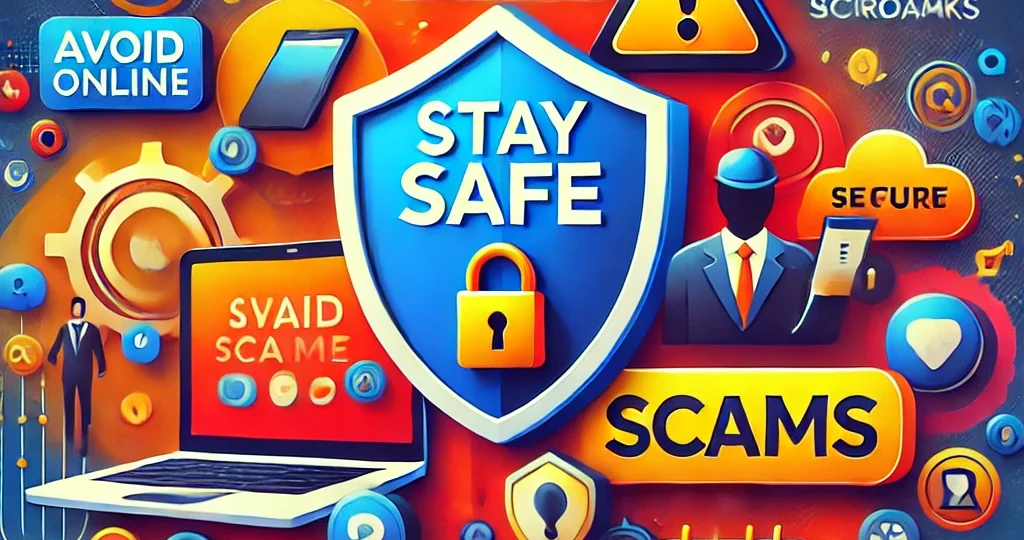Stay Safe Online: The Best Tips For Preventing Microtask Scams
September 3, 2024 | by Jean

Introduction to Microtasks and Scams
In the realm of online work, microtasks have gained popularity as a flexible way to earn money. However, along with the myriad opportunities that microtasks offer, there is also the lurking threat of scams. Understanding the fundamentals of microtasks and being aware of potential scams is essential for safeguarding oneself in the digital landscape.
What are Microtasks?
Microtasks, also known as crowdsourced tasks or gig work, are small, simple online tasks that can be completed by individuals from the comfort of their own homes. These tasks can range from data entry and image tagging to content moderation and online surveys. Microtask platforms connect task providers with workers who can complete these tasks in exchange for payment.
While microtasks offer a convenient way to earn supplemental income and may be suitable for freelancers, students, stay-at-home parents, and digital nomads, it is important to approach them with caution to avoid falling victim to potential scams.
Understanding the Risks of Microtask Scams
One of the primary risks associated with microtasks is the prevalence of scams. Scammers often exploit the anonymity and remote nature of online work to deceive unsuspecting individuals. By understanding the common red flags and tactics employed by scammers, individuals can protect themselves from falling prey to fraudulent schemes.
Some red flags to watch out for include:
- Unrealistic payment offers that seem too good to be true.
- Lack of clear instructions or vague task requirements.
- Requests for personal information, such as bank account details or social security numbers.
To delve deeper into the realm of microtask scams and learn how to safeguard yourself against potential threats, it is essential to explore strategies for identifying red flags, researching potential employers, and protecting yourself in the digital gig economy landscape.
Identifying Red Flags
Before engaging in microtasks, it is crucial to be vigilant and watch out for red flags that could indicate potential scams. By recognizing these warning signs, you can protect yourself from falling victim to fraudulent activities. Here are some key red flags to look out for:
Unrealistic Payment Offers
One common red flag in the microtasking world is receiving unrealistic payment offers for seemingly simple tasks. If a task promises exceptionally high pay for minimal effort or skills, it’s essential to exercise caution. Scammers may lure individuals with the promise of quick and easy money, only to exploit them later on. Always research the average pay rates for similar tasks on reputable platforms to ensure you are not being misled.
Lack of Clear Instructions
Another red flag to watch for is a lack of clear instructions or vague task requirements. Legitimate microtask assignments should provide detailed guidelines on what is expected from you, including the scope of work, deadlines, and any specific instructions. If the task description is ambiguous or lacks clarity, it could be a sign of a scam. Avoid tasks that leave you confused or uncertain about the work involved.
Request for Personal Information
Be wary of microtask opportunities that require you to disclose sensitive personal information upfront. Scammers may use fake tasks as a pretext to gather personal data such as your social security number, bank account details, or other confidential information. Legitimate microtask platforms typically do not ask for such information during the initial task assignment. If you encounter requests for personal data that seem unnecessary or suspicious, it’s best to proceed with caution.
Being able to identify red flags like unrealistic payment offers, vague instructions, and requests for personal information is essential for safeguarding yourself from potential microtask scams. By staying informed and vigilant, you can navigate the microtasking landscape confidently and protect your interests as a freelancer or gig worker. Remember to refer to our article on best microtask websites for insights on reputable platforms to explore safe and rewarding microtask opportunities.
Researching Potential Employers
In the realm of microtasks and gig work, it is vital to conduct thorough research on potential employers to safeguard yourself from falling victim to scams. Verifying the legitimacy of the employer and checking reviews and feedback can provide valuable insights to help you make informed decisions.
Verifying Legitimacy
Before committing to any microtask opportunity, take the time to verify the legitimacy of the employer. Look for essential details such as company information, contact details, and a professional website. Legitimate employers will have a transparent online presence that showcases their services and credibility. If you come across any discrepancies or inconsistencies, proceed with caution.
It’s also advisable to search online for any news or articles related to the employer. Pay attention to any reported scams or fraudulent activities associated with the company. By gathering this information, you can assess the reliability of the employer and determine if they are trustworthy.
Checking Reviews and Feedback
An effective way to gauge the reputation of a potential employer is by checking reviews and feedback from other freelancers or gig workers. Platforms that aggregate feedback, such as review websites or forums dedicated to gig workers, can provide valuable insights into the experiences of others who have worked with the employer.
Look for patterns in the reviews, paying attention to comments on payment practices, communication, and overall experience. Positive reviews that highlight timely payments, clear instructions, and professional conduct are key indicators of a reputable employer. Conversely, negative reviews that mention delayed payments, unresponsive communication, or suspicious requests should raise red flags.
By taking the time to verify the legitimacy of potential employers and reviewing feedback from other freelancers, you can make informed decisions when selecting microtask opportunities. Prioritizing your safety and financial security through thorough research can help you avoid falling prey to microtask scams and ensure a positive and rewarding experience in the gig economy.
Protecting Yourself
In the realm of microtasking and online gigs, safeguarding yourself against potential scams is paramount. By adopting certain practices, you can reduce the risk of falling victim to fraudulent activities. Here are some key strategies for protecting yourself:
Using Secure Payment Methods
When engaging in microtasks or freelance work online, it’s essential to prioritize the security of your payments. Opt for reputable and secure payment platforms that offer buyer and seller protection. By using secure payment methods, you can mitigate the risk of financial loss in case of disputes or fraudulent transactions.
Setting Boundaries and Limits
Establishing clear boundaries and limits in your online work can help protect your time, personal information, and overall well-being. Be cautious of requests for sensitive personal data or tasks that seem suspicious or unethical. Setting boundaries ensures that you maintain control over the type of work you undertake and the information you share online.
Reporting Suspicious Activity
If you encounter any suspicious activity or feel that you may be targeted by a scam, it is crucial to report it promptly. Most legitimate platforms have mechanisms in place for users to report fraudulent behavior or violations of terms of service. By reporting suspicious activity, you not only protect yourself but also contribute to the safety of the online community.
By incorporating these protective measures into your online work routine, you can minimize the risk of falling prey to microtask scams and fraudulent schemes. Remember to stay vigilant, educate yourself on common scam tactics, and prioritize your safety and security in the digital landscape. For more insights on navigating the gig economy safely, explore our article on safe practices for freelancers.
Learning from Others’ Experiences
Gaining insight from the experiences of others in the gig economy can be invaluable in navigating the landscape of microtasks. By learning about real-life scam examples and gathering tips from seasoned freelancers, individuals can enhance their awareness and protect themselves from potential fraudulent activities.
Scam Examples in Microtasking
Understanding the various forms that microtask scams can take is essential for staying safe online. Some common scam examples in the microtasking realm include:
| Scam Type | Description |
|---|---|
| Fake Job Offers | Scammers posing as legitimate employers offering high-paying jobs with unrealistic expectations. |
| Payment Requests | Demands for upfront fees or personal financial information before allowing access to tasks. |
| Data Harvesting | Requests for sensitive personal data under the guise of task completion, leading to identity theft. |
| Task Abandonment | Employers disappearing after collecting completed tasks without providing payment. |
Being able to recognize these red flags can help individuals avoid falling victim to fraudulent schemes and protect their financial and personal information.
Tips from Experienced Freelancers
Seasoned freelancers who have navigated the gig economy for some time often possess valuable insights and strategies for avoiding microtask scams. Here are some tips from experienced freelancers:
-
Validate Employers: Before accepting any microtasking opportunities, research and verify the legitimacy of the potential employers. Look for reviews, ratings, and feedback from other freelancers to assess their reputation.
-
Clear Payment Terms: Ensure that payment terms are clearly outlined before starting any task. Avoid engagements that request upfront fees or require access to sensitive financial information.
-
Trust Your Instincts: If a task or offer seems too good to be true, it likely is. Trust your instincts and decline any opportunities that raise suspicions.
-
Community Forums: Engage with online communities and forums for freelancers to stay informed about potential scams and learn from the experiences of others.
By heeding the advice of experienced freelancers and educating oneself on prevalent scam practices, individuals can minimize their risk exposure and engage in microtasking activities safely and confidently. Stay vigilant, stay informed, and prioritize your online safety in the gig economy.
RELATED POSTS
View all


